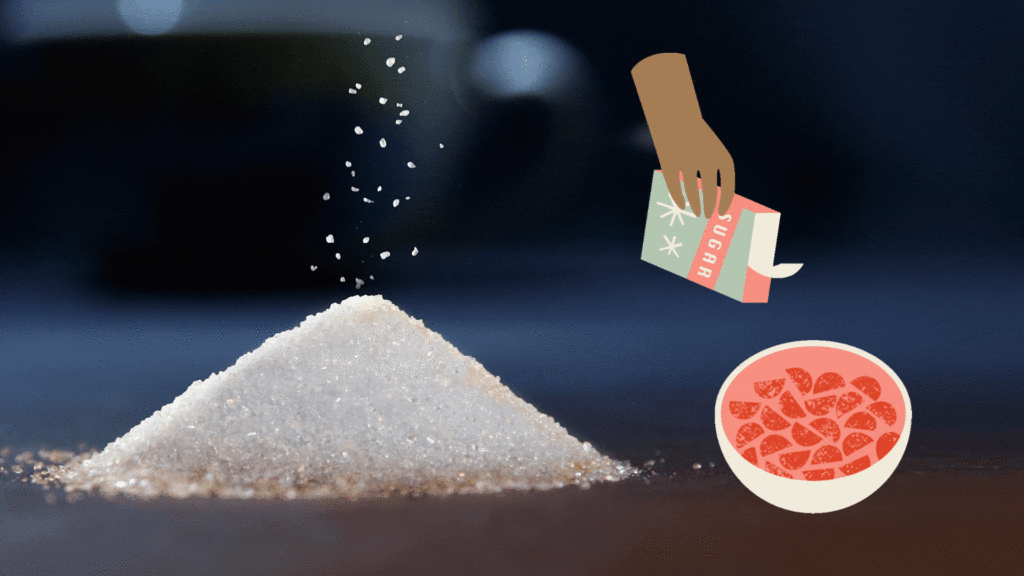The Sweet Truth About Sugar
Sugar, a staple in most of our diets, often serves as a comforting treat. Yet, its impact on oral health is far from comforting. Sugar doesn’t directly erode your teeth; however, it sets the stage for something equally harmful—the formation of cavities. When sugar enters your mouth, bacteria get busy and convert it into acid. This acid gradually eats away at your tooth enamel, creating the perfect conditions for cavities to flourish. Regular brushing and flossing, paired with a reduced intake of sugary foods, can serve as a strong defense against this process. It’s notable that a diligent oral hygiene routine can cut down your cavity risk by as much as half. For those keen on diving deeper into maintaining oral health, a closer look at resources like this link: https://www1.deltadentalins.com/areas-we-serve/texas.html can offer further insights.
Impact of Sugar on Oral Bacteria
Sugar consumption triggers a cascade of events within our mouths. The bacteria present in dental plaque revel in consuming sugars, breaking them down, and releasing acid as a byproduct. This acid is what spells trouble for our teeth. Over time, it weakens the enamel, the hard outer shell of our teeth, and leads to cavity formation. A diet rich in sugar can tilt the balance of your oral microbiome towards harmful bacterial dominance. It’s vital to remember that each sugary snack is a feast for these bacteria, increasing the frequency of acid attacks on your teeth. Understanding these dynamics can enable you to make wiser dietary choices, and reading expert analyses, like a Harvard Health study, offers an in-depth perspective.
Recognizing Hidden Sugars
Perhaps one of the most stealthy aspects of sugar consumption is its hidden presence in everyday foods. Items you wouldn’t typically consider sugary—like savory dressings, condiments, and even bread—often contain added sugars. This is why scouring nutrition labels has become an essential practice. Terms like fructose, glucose, and high-fructose corn syrup often indicate added sugars sneaking into your diet unannounced. Awareness is key; by recognizing these concealed sugars, you can make more informed decisions about the foods you eat, moving towards a diet that supports better oral health.
Simple Steps to Protect Your Teeth
- Limit sugary snacks: Transition from sugary treats to nutritious options such as fresh fruits and crunchy vegetables. They not only provide essential vitamins but also help clean teeth naturally.
- Stay hydrated: Drinking water rinses away food particles and sugars, keeping your mouth cleaner between brushing sessions.
- Routine dental check-ups: Routine visits to your dentist play a crucial role in preventing, identifying, and treating any dental issues before they worsen.
The Role of Saliva in Oral Health
Saliva, often underestimated, is a silent protector for your teeth. It’s your mouth’s natural defense against decay, washing away food particles and neutralizing acids. Without adequate saliva, your teeth become more vulnerable to decay. Practices such as chewing sugar-free gum can stimulate saliva production, offering additional protection against sugar’s effects. To grasp the full scope of saliva’s protective benefits and how it combats dental issues, consider exploring the American Dental Association’s extensive guide.
Why Children Are More Susceptible
Children face a distinct higher risk of dental issues because of their dietary habits and the developmental nature of their teeth. Baby teeth possess thinner enamel compared to adult teeth, making them more susceptible to the acids produced from sugar. Furthermore, the allure of candy and sugary snacks often proves irresistible to children. Encouraging good dental habits early—like brushing twice daily and moderating sugary snack consumption—can greatly protect their developing teeth. Adopting story-based brushing techniques or fun dental apps can help encourage children to maintain oral hygiene.
Sugar Alternatives: Are They Safer?
With growing awareness about sugar’s impact, many people now turn to sugar substitutes, looking for healthier options. While artificial sweeteners do not directly contribute to cavities, they can still harbor acids harmful to teeth. Moderation remains vital. It’s better to gradually get accustomed to foods and beverages with less added sweeteners, enabling both your palate and teeth to benefit.
Achieving a Balanced Diet for Healthy Teeth
Nutritional choices make a significant impact on oral health. Diets abundant in fruits, vegetables, lean proteins, and dairy replenish vital nutrients required for maintaining strong teeth and gums. Foods rich in calcium fortify tooth enamel, while vitamin D promotes calcium absorption, further enhancing bone and tooth health. Emphasizing a balanced approach to nutrition ensures holistic well-being and lays a sturdy foundation for dental health.
Conclusion
In conclusion, sugar plays a critical role in the deterioration of oral health, primarily by fueling bacteria that produce acids harmful to tooth enamel. While sugar itself doesn’t directly cause cavities, it creates an environment where cavities can thrive. To protect your teeth, it’s essential to maintain a good oral hygiene routine, limit sugary snacks, and stay aware of hidden sugars in everyday foods. Regular dental check-ups and saliva production also play crucial roles in defending against decay. By making informed dietary choices and understanding the effects of sugar, we can take proactive steps toward preserving our oral health for the long term.

